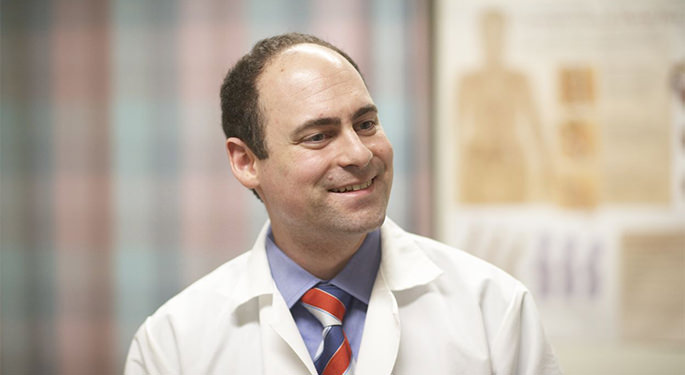Male Hormone Disorders

The endocrinologists at Mount Sinai are experts in diagnosing and treating male hormonal disorders. The most common condition is hypogonadism, also known as “low testosterone” or “low T”.
Men with low testosterone often suffer from low desire, fatigue, depression, poor mental focus, inability to maintain muscle mass, gynecomastia (breast growth), infertility and erectile dysfunction.
When a man is evaluated for low testosterone, his testosterone level should be drawn at 8am after a good night’s sleep. Otherwise, there is a risk of misdiagnosis and years of unnecessary treatment.
It is important to investigate whether there is an underlying cause for hypogonadism, before starting treatment. Once testosterone therapy is started, the treatment may complicate the diagnosis. Possible causes for low testosterone are:
- Obesity
- Uncontrolled diabetes
- Sleep apnea
- Chromosomal abnormalities (such as Klinefelter disease)
- Other hormonal conditions, such as prolactinoma or thyroid disease
- HIV/AIDS
- Certain medications
- Eating disorders and many others.
Rather than simply prescribing testosterone, our endocrinologists aim to address the underlying cause. For instance, researchers at Mount Sinai have found that many obese men with low testosterone undergoing weight loss surgery greatly improve testosterone and erectile function.
Our specialists also work with urologists and reproductive endocrinologists to help men struggling with infertility. Mount Sinai’s experts in male hormonal conditions will prescribe the appropriate treatment to address the underlying condition or recommend medications that raise testosterone levels, while monitoring for side effects and treatment progress.